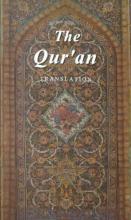Humanists Doing Good
By Daniel Braga-Lawlor
Sunday Assembly is a negotiated community, a network of secular congregations across the world, primarily in Western Europe, North America, South Africa, and Australia. The dominant, though occasionally debated, ethos in Sunday Assembly is faith-neutral secularism ("Let's celebrate the one life we have! We don't do deity, but we won't tell you you're wrong if you do!").
Sunday Assemblies organize a monthly celebration, have no official text, no clergy (we rotate hosts for our Sunday celebrations), and each community has great latitude in selecting its speakers, songs and readings, as well as defining the local service work. The songs we sing are not hymns, but come from across pop music - in Northern California, we've sung "Superstition," by Stevie Wonder, "Lean On Me," by Bill Whithers, "Both Sides Now" by Joni Mitchell, "Time after Time," by Cyndi Lauper, and many others. We operate from the premise that knowledge from across the fields (arts, sciences, economics, ethics) offers insights, and that all people, as believers and non- believers alike, matter. Read more about Humanists Doing Good »









